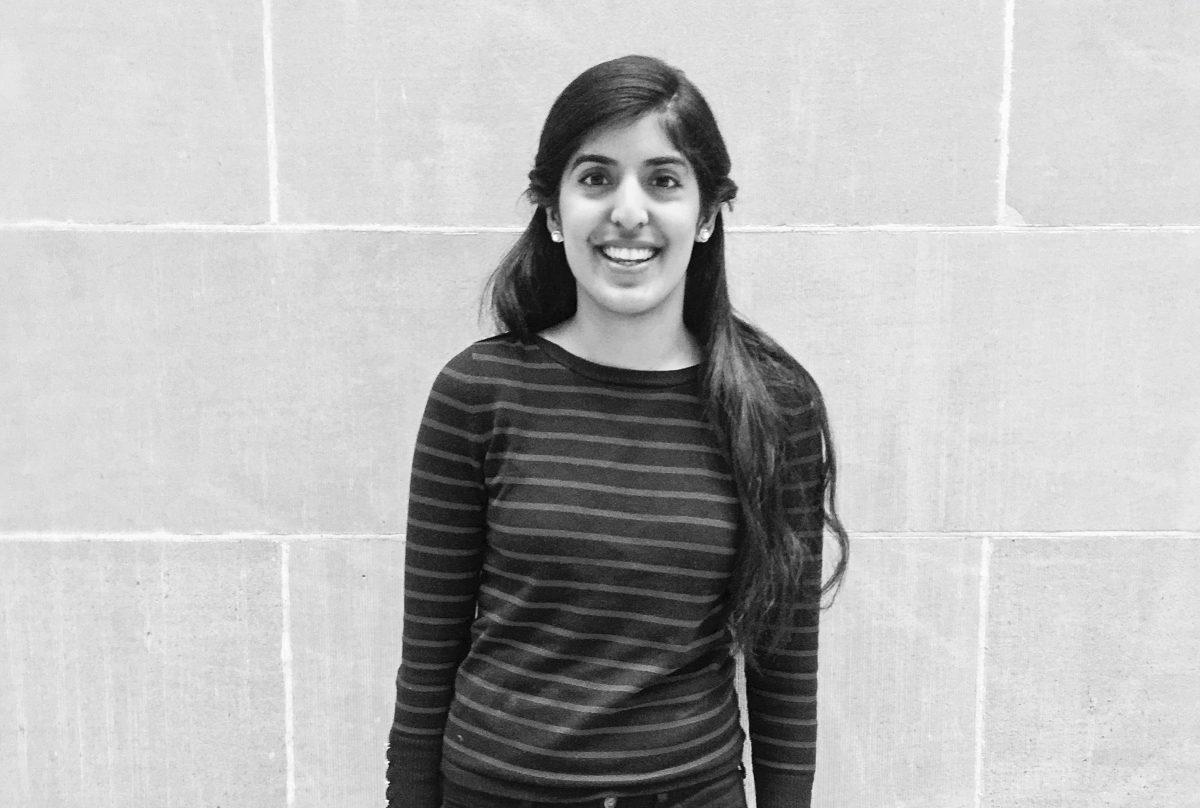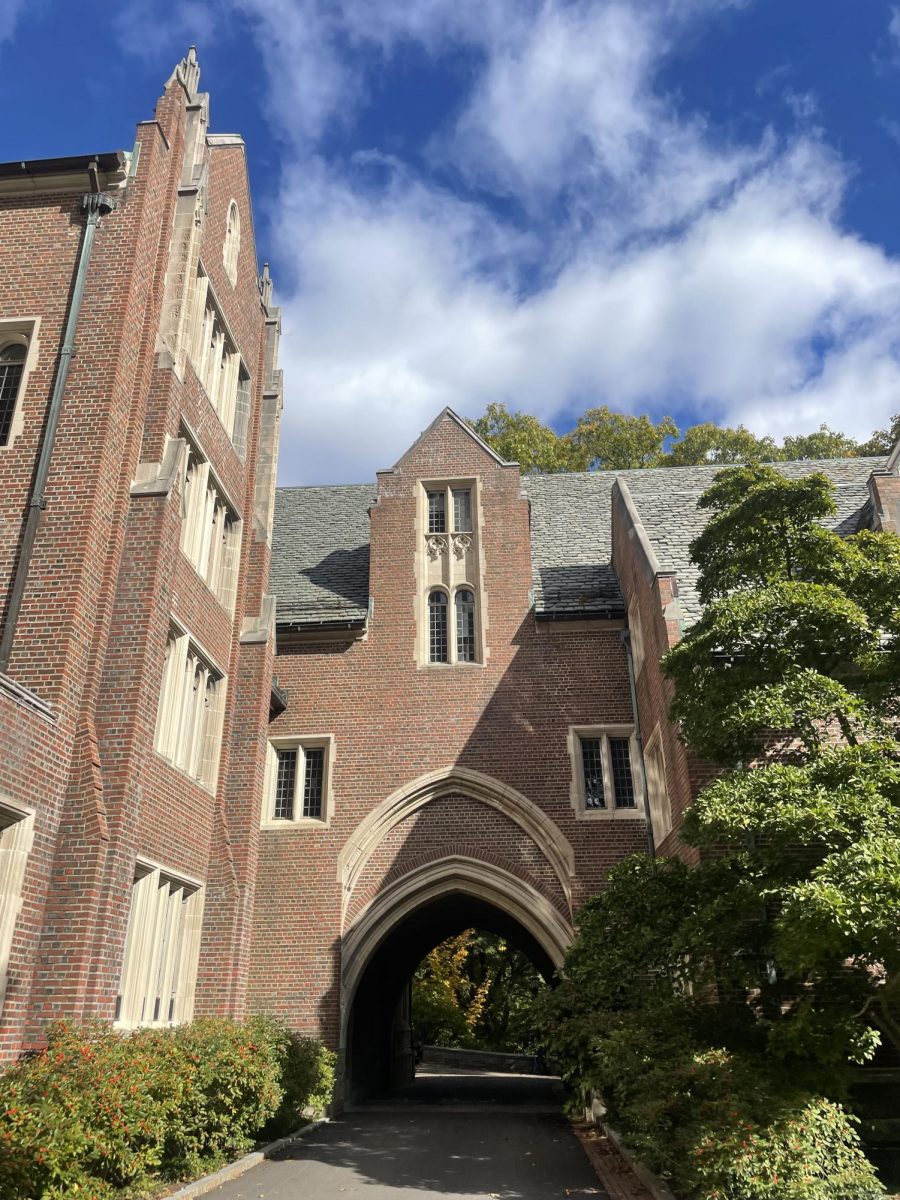Starting this semester, Tanvee Varma ’18 will lead a team of Wellesley students as they create a status report on Asian-Americans and Pacific Islanders (AAPI) in Boston. This will be be the first report of its kind to exist in the city.
The ultimate goal of Varma’s project is to create a single, comprehensible status report of AAPI individuals living in Boston for legislators to potentially use when they create laws and programs that will improve the lives of Asian-Americans. Though much of this information has already been published in the census and public health reports, it is very difficult to extract the relevant data from the sheer amount of information available.
Varma got the idea for this project during Asian-American Awareness Month in March of 2016. In Wellesley’s Alumnae Ballroom, she listened to a speaker from the Asian Prisoner Support Committee discuss the issue of rising incarceration rates among Asian-Americans in California.
This rising incarceration rate is problematic in and of itself, but according to Varma, it isn’t the only issue. “It’s a problem because not many people know about it. There’s not a lot of data available, or the data is hard to find. Accessibility of data is a social justice issue, because data allows people of color to advocate for reform,” Varma said.
After listening to the speaker, Varma did some investigating on her own. “I saw that some cities and states actually make it a point to publish a report on the status of Asian-Americans. But Boston doesn’t do anything like that. My idea was: what if a group of Wellesley College students created that report?” Varma said.
Varma and her team will gather and synthesize information on AAPI individuals throughout the Boston area, covering demographics, income, education, physical and mental health, crime and violence, immigration, housing and language. “We want to look at everything we can that’s related to the Asian-American community in Boston,” Varma said.
Communities that do not have this type of data readily accessible are handicapped because of the lack of awareness about the difficulties they face, and Varma argues that this is especially true for Asian- Americans. When people think of Asian-Americans, they usually do not think of poverty, rising incarceration rates, poor education opportunities or mental health issues. According to Varma, these difficulties are vastly overshadowed by the model minority myth claiming that Asians are the most successful, prosperous immigrant community in the U.S.
While it is true that some Asian-Americans might fit the stereotype, people tend to overlook the reality of certain Asian-American subgroups. According to the White House Initiative on Asian-Americans and Pacific Islanders, 29 percent of Cambodians and 38 percent of Hmong, for example, live below the poverty line. Varma hopes that her research will help establish that the model minority myth is just that: a myth.
Not everyone in the Asian-American community has equal opportunities in areas such as employment and education. “Knowledge of these differences can help policymakers tailor policies to most effectively benefit minority groups. Unfortunately the Asian American community is often neglected—perhaps due to a lack of data, a lack of interest, or the model minority myth,” said Vivien Lee ’17, who will be part of Varma’s research team.
Grace Ming ’18 will be in charge of creating graphics for the project so that the information will be understandable at a glance. She hopes that compiling statistics will illuminate the vast diversity contained in the term “Asian-American.” “I want this report to clarify the fact that not all Asian Americans have the same experience,” Ming said.
Once the report is completed, Varma plans to present the major findings to the Office of Diversity, with whom she has been exchanging emails over the past semester. They agreed to collaborate with her and give feedback. Boston Mayor Martin Walsh created the Office of Diversity two years ago with the purpose of supporting minority communities throughout Boston in terms of education and employment opportunities.
Varma’s long-term goal is for a group of Wellesley students to update the AAPI Boston status report every few years. They would keep track of and document the changes that occur within the Asian- American community in Boston, and they would also assess the effectiveness of any initiatives and policies created by the Office of Diversity.
Currently, Varma is finalizing her team of researchers. They have not yet met together as a group. Once she knows who will be working on the project, she will assign one to two people to collect data on each of ten subsections of the report.
Out of the many students who have shown interest, she will only be able to accept about ten to fifteen. She asks that researchers commit three to four hours per week synthesizing data and meeting with her regularly to discuss their progress. Professor Stephen Chen of the psychology department is Varma’s adviser, and any students who wish to obtain academic credit for their work on this project should speak to him.
If students wish to get involved, they should contact Varma as soon as possible at [email protected]. The ideal student would be one who has experience with synthesizing data, but who also is passionate about policy making and social justice in the Asian-American community.






